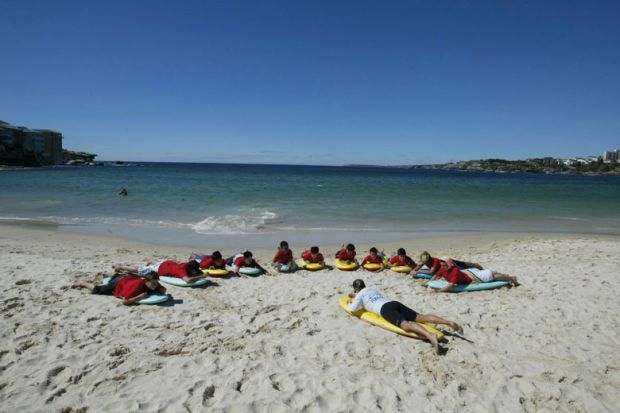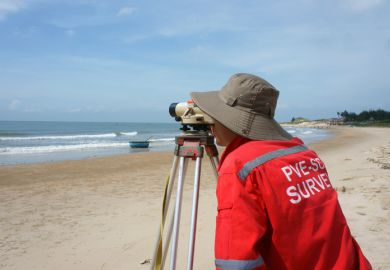Faculty development and mentoring is something that often occurs naturally in academic environments. And, in many cases, institutions rely on that style of mentoring.
Even as awareness grows, this informal process, however, may mean that some faculty do not have access to the kinds of mentoring that they might need. While the right balance in faculty development and mentoring is a universal aim for all academic institutions, the challenges faced by new and emerging institutions can be exceptionally different. Young institutions could be developing and building the faculty management policies while simultaneously recruiting and managing a substantial number of faculty members who have a range of experiences.
How should young institutions manage the various concerns of new faculty members? How can young institutions retain and develop faculty? In the absence of institutional precedents for tenure track appointments, is it possible to effectively address the anxieties that aspiring faculty members may face?
Having recently landed on the sunny shores of Singapore and Yale-NUS College, I have been motivated quite consciously to think about how such mentoring support can be provided more universally amid such challenges. While I have been the beneficiary of many informal advisers and colleagues, to whom I will always be grateful, I have seen faculty members who have not had that same support.
Explore university jobs in Singapore
This has led me to focus on how mentoring, something that many people see as intangible and organic, can be more intentionally institutionalised.
At the founding of Yale-NUS College in 2011, the academic team looked into creating clear policies and formulating a thorough review process. However, the rapid changes during the starting phase of the college meant that our educational and institutional policies needed to be continually adjusted and refined year-on-year. But these considerable challenges also present opportunities to build our capacity in mentoring with intentionality and to foster collaboration and openness to these experiences of our faculty.
From the start, we began by listening to faculty concerns, and trying to address and engage with them, both personally and professionally. How do we help them to settle easily into a new country? How can we support them as they navigate new granting agencies? What is the required IT support? Addressing what may seem to be small concerns makes a big difference in building our sense of community and in building trust that we are listening and are responsive.
Since the college’s launch, we have been actively recruiting faculty members who are keen to be part of this pioneering team weaving together common threads of inquiry, analysis and global perspectives throughout the curriculum in a brand new institution. Unlike other institutions, Yale-NUS groups faculty across three interdisciplinary divisions: science, social sciences, and humanities. While this offers fresh perspectives and opportunities for innovative applications of the concept of interdisciplinary learning, the relative youth of the College also means that we face interesting challenges and opportunities.
Here, we have a faculty that is disproportionately junior. Although this is not surprising for a new institution that has only been in operation for about five years and is preparing to graduate its first class of students, it does mean that we are in the process of developing and building our institution while simultaneously having a large number of faculty progressing through their tenure track appointments. But this also presents opportunities for reflection, enabling us to build our own approach and culture towards mentoring.
At the same time, we have to pay attention to the development prospects for aspiring faculty members. All tenure track faculty are naturally anxious as they progress through this process, and this is perhaps amplified when they see no institutional precedents. Hence, as members of the academic leadership team, we must ensure that we clearly communicate expectations, demystify the process, mentor faculty through this process, and support their success and reinforce community. We also need to focus on both teaching and research in a way that is consistent with our values as a liberal arts college that prizes excellence in both arenas.
We are working to provide information – in the form of individual mentoring and group sessions on topics proposed by our colleagues – on how to prepare for tenure, how to think about peer review of teaching, how to make the most out of study leave, how to settle quickly and comfortably, and so on. As we refine our faculty development policies, new proposals will be tested in the coming academic year. For example, a monthly mentoring workshop for faculty on how to manage their careers.
We also want to support research, which can be a lonely and sometimes invisible part of academic life in a busy liberal arts setting – supporting writing workshops, academic visitors and conferences, brown bag seminars and, more generally, finding ways to celebrate and support each other’s successes. As a residential college where conversations within the community take place both inside and outside the classrooms, and at all hours, we also need to focus on the social aspects. Hence, we are also exploring avenues for social interactions among colleagues – family barbecues and women’s coffee hours – again, responding to faculty interests.
We have no desire to fill up the calendar with too many events and obligations, but rather to be thoughtful and cognisant that time is precious and so to seek out programmes that are meaningful for our faculty. Although, as a Canadian here in the tropics, I am currently trying to drum up interest in a family ice skating event.
What have we learned so far? Well, it is perhaps premature to say but it is clear that we need an approach to faculty development that personalises, supports, and recognises the whole person.
This is especially important since so many of our faculty are far from their other traditional supports and embarking on settling into a new country and culture at the same time as settling into their new academic roles. We need clear and transparent expectations to reduce stress and build trust. We need to be open to input and evolve in response to that faculty input. We need to use formal mentoring relationships and institutionalised mentoring moments, but recognise that people do well when mentoring is a part of the culture and when they have multiple overlapping relationships providing guidance and support.
We also need to realise that soon we will have a large group of tenured faculty who will need different forms of mentoring as they embark on the next stages of their professional lives. That represents yet another opportunity for us to refine our mentorship methods and build up capabilities in this aspect.
Here at Yale-NUS, we are perhaps more at the stage of aspiration than realisation, but as we strive to carve out our own unique and vibrant culture as a residential liberal arts college in Singapore, aspiration is at the core of everything that we do.
Joanne Roberts is dean of faculty at Yale-NUS College, Singapore.
Register to continue
Why register?
- Registration is free and only takes a moment
- Once registered, you can read 3 articles a month
- Sign up for our newsletter
Subscribe
Or subscribe for unlimited access to:
- Unlimited access to news, views, insights & reviews
- Digital editions
- Digital access to THE’s university and college rankings analysis
Already registered or a current subscriber? Login







